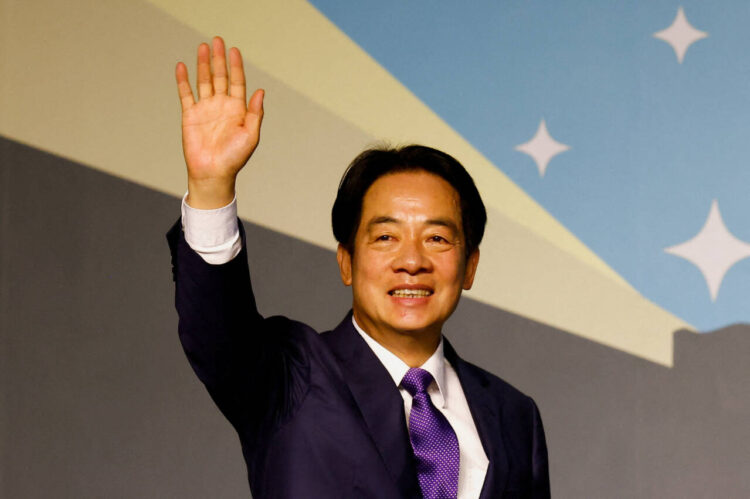In his inauguration speech on Monday, Taiwan’s newly sworn-in President Lai Ching-te celebrated the beginning of a “glorious era” for the island’s democracy and urged China to stop its political and military intimidation.
President Lai, addressing the persistent threat of war amidst increasing pressure from China to bring Taiwan under mainland control, expressed gratitude to the citizens for their steadfast defense of democracy. “A glorious era of Taiwan’s democracy has arrived,” Lai proclaimed, thanking citizens for “resolutely defending democracy” against external forces.
Highlighting the importance of national security, Lai emphasized the need for vigilance. “In the face of many threats and attempts of infiltration, we must demonstrate our resolution to defend our nation and raise our defense awareness while strengthening our legal framework for national security,” he stated.
Despite his past reputation in Beijing as a “dangerous separatist” due to his pro-independence remarks, Lai has since moderated his rhetoric. On Monday, he reiterated his commitment to maintaining the status quo. “Our government will neither yield nor provoke, and will maintain the status quo,” he assured, aiming to preserve Taiwan’s sovereignty without declaring formal independence.
Lai called on China to halt its intimidation tactics. “I also want to call on China to cease their political and military intimidation against Taiwan,” he urged. He advocated for a collaborative approach to maintain peace. “Beijing should share with Taiwan the global responsibility of maintaining peace and stability in the Taiwan Strait and ensure the world is free from the fear of war,” Lai added.
During his four-year term, Lai is expected to increase defense spending and strengthen ties with Washington to deter Chinese aggression. China, which views Taiwan as part of its territory, has consistently threatened to use force to bring the island under its control.
Domestically, Lai faces the challenge of navigating a legislature where his Democratic Progressive Party (DPP) no longer holds a majority, following losses in the January elections. This may hinder his ability to pass policies smoothly.
As Lai took office, Chinese state media reported that Beijing imposed sanctions on three U.S. defense companies over their arms sales to Taipei. In response, U.S. Secretary of State Antony Blinken congratulated Lai and expressed his eagerness to deepen Washington-Taipei ties, aiming to maintain “peace and stability across the Taiwan Strait.”

















Comments